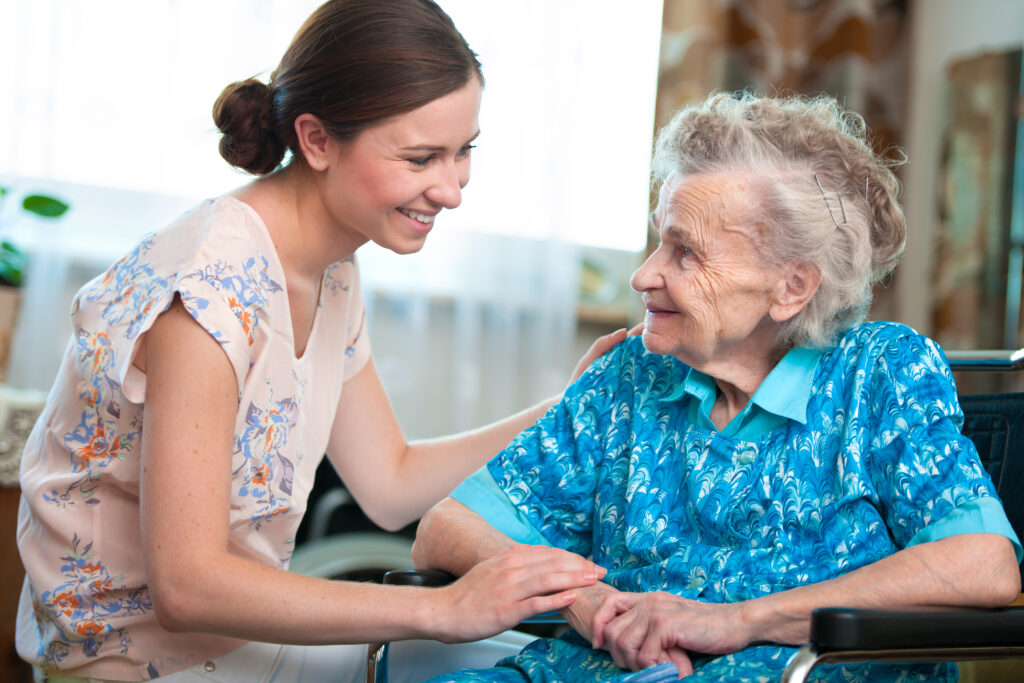Home » Staff Hub – Lincolnshire Care Record » Patient scenarios
Examples: Patient scenarios
Find out how the Lincolnshire Care Record can help and the impact it can make.
-
Reducing medication errors in primary and secondary care

Primary Care
Scenario:
A patient is discharged from the hospital with a new prescription for heart failure medication. Their GP accidentally prescribes a conflicting drug, causing a dangerous interaction.
How the Lincolnshire Care Record helps:
- The GP sees real-time hospital discharge summaries before prescribing.
- Community pharmacists can review changes and flag interactions.
- The risk of polypharmacy-related errors is reduced, improving patient safety.
Impact:
- Reduced medication errors and hospital readmissions
- Improved communication between hospital and primary care
- Safer prescribing practices
-
End-of-Life & Palliative Care Coordination

Community Care
Scenario:
A terminally ill cancer patient receives palliative care at home, but out-of-hours doctors are unaware of their care preferences. The patient is taken to A&E, despite their wish to stay at home.
How the Lincolnshire Care Record helps:
- The palliative care team logs the patient’s advance care plan, DNACPR order, and preferred place of death.
- Out-of-hours teams access this in an emergency, avoiding unnecessary hospital admissions.
- The GP, hospice, and district nurses collaborate seamlessly, ensuring compassionate care.
Impact:
- Respect for patient preferences
- Reduced inappropriate hospital admissions
- Better end-of-life care coordination
-
Child protection and safeguarding

A&E Care
Scenario:
A 6-year-old child is seen at A&E for multiple bruises and fractures. The doctor suspects non-accidental injury (NAI) but has no access to previous records across GP, social services, and community teams.
How the Lincolnshire Care Record helps:
- The clinician sees a pattern of previous injuries, school nurse reports, and social worker concerns, raising an immediate safeguarding alert.
- Multi-agency collaboration enables rapid intervention to protect the child.
- The GP, social worker, and hospital team share relevant information in real time, improving safeguarding measures.
Impact:
- Faster identification of at-risk children
- Improved child protection responses
- Secure, appropriate information sharing between agencies
-
Maternity and Postnatal care

Community Care
Scenario:
A pregnant woman moves to a different city at 32 weeks gestation. Her new maternity team lacks access to her previous ultrasound scans, blood test results, and consultant notes.
How the Lincolnshire Care Record helps:
- The maternity team instantly retrieves her pregnancy history, including gestational diabetes risk and previous complications.
- Midwives, obstetricians, and GPs coordinate care without needing to request paper records.
- Postnatally, the baby’s neonatal and immunization history is accessible across primary and secondary care.
Impact:
- Seamless continuity of maternity care
- Reduced duplication of tests and unnecessary referrals
- Better pregnancy outcomes
-
Emergency care: rapid access to critical patient information

A&E Care
Scenario:
A patient is admitted to the Emergency Department (ED) unconscious after a car accident. The ED team needs immediate access to the patient’s medical history to avoid harmful treatments.
How the Lincolnshire Care Record helps:
- Clinicians access the Shared Care Record to check for allergies, medications, and existing conditions (e.g., epilepsy, diabetes, anticoagulation therapy).
- Real-time data sharing prevents the administration of a medication that could cause an adverse reaction.
- The system alerts ED staff that the patient is under the care of a mental health team, ensuring a holistic approach to care.
Impact:
- Faster, safer clinical decisions
- Reduced risk of adverse drug interactions
- Improved patient safety and outcomes
-
Mental health and crisis intervention

Mental Health
Scenario:
A patient with bipolar disorder experiences a crisis and is detained under the Mental Health Act by paramedics and police. They are transferred to a crisis intervention unit, but clinicians lack access to their full medical history.
How the Lincolnshire Care Record helps:
- The crisis team accesses recent psychiatric evaluations, medication history, and care plans in real time.
- Primary care and community mental health teams are automatically alerted to ensure continuity of care.
- Any known triggers or de-escalation strategies from the SCR inform clinicians to manage the situation effectively.
Impact:
- Better coordination between emergency services and mental health teams
- Faster stabilization of the patient, reducing distress
- Prevention of unnecessary hospital admissions
-
Long-term condition management: diabetes and multi-disciplinary care

ICS Care
Scenario:
A patient with Type 2 Diabetes is under the care of a GP, a community diabetic nurse, and a hospital endocrinologist. Each provider has separate records, leading to gaps in care.
How the Lincolnshire Care Record helps:
- The GP, hospital, and community team share blood test results, prescriptions, and foot screening records.
- The SCR enables seamless monitoring of HbA1c trends, preventing duplicate tests.
- The patient avoids unnecessary referrals because clinicians can see the latest specialist recommendations.
Impact:
- Improved coordination between primary, secondary, and community care
- Reduced administrative burden for clinicians
- Proactive intervention before complications arise
-
Social Care: safeguarding and co-ordinated support for vulnerable patients

ICS Care
Scenario:
An elderly patient with dementia and mobility issues receives home care visits, attends a day centre, and is supported by their GP. They are frequently admitted to A&E due to falls, but clinicians lack visibility into their home care plan.
How the Lincolnshire Care Record helps:
- The GP, social care providers, and district nurses access a shared record of fall incidents, care visits, and medication adherence.
- The social worker and healthcare team collaborate on a falls prevention plan, reducing hospital admissions.
- Family caregivers are engaged with relevant updates, ensuring a holistic approach to care.
Impact:
- Better integration of health and social care services
- Reduced emergency admissions through preventative care
- Enhanced patient safety and independence